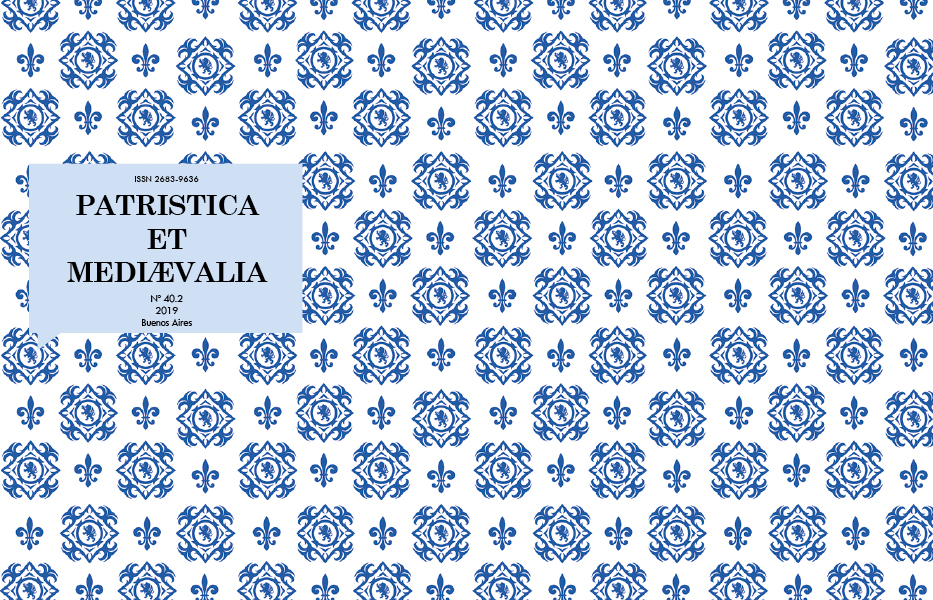División, objeto y abstracción de las ciencias especulativas según Francisco Suárez
Resumen
Durante los últimos decenios del siglo XX la filosofía de Francisco Suárez fue considerada parte integrante de un movimiento escolástico comúnmente mencionado como escuela tomista. La perspectiva de abordaje, según el mote impuesto, colocaba la posición especulativa del Dr. Eximio más próxima al dominico Tomás de Aquino de acuerdo con los siguientes matices: a. en el ámbito epistémico la figura del Aquinate eclipsaba ampliamente aquella de Suárez, promoviendo una auténtica desconsideración de sus tesis originales; b. el jesuita español fundaba, igual que Tomás de Aquino, la división de las ciencias especulativas en el acto intelectual de abstracción; c. la diferencia entre ambas concepciones metafísicas no implicaba necesariamente una comprensión epistémica distinta. Ahora bien, contra estas interpretaciones aparece en el siglo XXI otra lectura, donde se acentúa la diferencia decisiva de la filosofía del jesuita del siglo XVI, quien, en letras medievales, escribe y piensa en permanente tensión entre la herencia de la filosofía antigua y medieval por una parte, y una neo-escolástica de aires renacentistas por la otra. De acuerdo con ello, si bien su pensamiento discurre por una tradición aristotelizante del saber, la comprensión de las ciencias se asienta, a diferencia de Tomás de Aquino, en clave objetiva. Sobre esta premisa, el siguiente estudio abordará con exclusividad la originalidad epistémica de Suárez según la división de las ciencias especulativas y reales, mostrando el orden, el principio y las relaciones entre las ciencias física, matemática y metafísica.Descargas
Citas
Alejo Montes, F. J. (1990). “La Universidad de Salamanca en el s. XVI: la reforma educativa de D. Juan de Zuñiga (1594)”, Studia histórica: Historia Moderna 8, 151-162.
Bonino, S.-T. (1997). “Avant-propos. Le thomisme et son historie”, Revue thomiste 97, 5-8.
Bonino, S.-T. (2000). “L’école thomiste au XVe siècle”, Rivista Teologica di Lugano V.2, 223-234.
Bonino, S.-T. (2007). “Le thomisme parisien au XVe siècle”, Revue thomiste 107,625-653.
Courtine, J.-F. (2015). Suarez et le système de la métaphysique. París: Épiméthée.
Cuccia, E. (2015). “El problema tomístico de la abstracción. Una reconsideración en torno a la interpretación tradicional y sus limitaciones”, Cauriensia X, 245-263.
Cuccia, E. (2017a). “El sentido de la abstracción en Tomás de Aquino. Una revisión a partir del uso textual del término”, Scripta Mediaevalia 10.1, 83-112.
Cuccia, E. (2017b). “Abstracción y matemática en el Comentario a la Física de Tomás de Aquino: más allá de las operaciones intelectuales”, Eidos 27, 154-173.
Cuccia, E. (2018). “La abstracción en Tomás de Aquino: una vía más allá de la epistemología tomista”, Areté. Rev. de Filosofía 30.2, 245-263.
Fabro, C. (1965). Historia de la Filosofía I. Madrid: Rialp.
Florido, F. L. (2010). Las filosofías en la Edad Media. Crisis, controversias y condenas. Madrid: Biblioteca Nueva. Gilson, E. y Langan, Th. (1963). Filosofía Moderna. Barcelona: Emecé.
Gómez López, C. (1996). “La Renovatio Urbis: poder, ciudad y universidad en el s. XVI”, Espacio, Tiempo y Reforma. Serie VII. Historia del Arte 9, 53-76.
Hale, J. R. (2016). La Europa del Renacimiento 1480-1520. Madrid: Siglo XXI.
León Florido, F. L. (2000). “Una estructura filosófica en Historia de la Filosofía”, Anales del Seminario de Historia de la Filosofía 17, 195-216.
León Florido, F. (2011). “Estudio Preliminar”. En: Suárez, F. Disputaciones metafísicas. Madrid: Tecnos.
Lohr, Ch. H. (1996). “Del aristotelismo medieval al aristotelismo renacentista”, Patristica et Mediaevalia 17, 3-15.
Lorenz, D. (2003). “Sobre algunos disensos, progresos y crisis en la historia de la metafísica tomista”, Revista Philosophica 26, 1-16.
Mendoza, J. M. F. (2015). “Breve status quaestionis de la ciencia neotomista como introducción confusa al sentido de scientia tomística: algunas apreciaciones históricas en filósofos del siglo XX”, Pensamiento 71.267, 617-630. Mendoza, J. M. F. (2017). La noción de scientia en Tomás de Aquino. Un estudio acerca de los sujetos de las ciencias, las distinciones de sus nombres, sus divisiones y ordenamiento. Buenos Aires: Prometeo.
Muñoz, C. P. D. (2016). Objetividad y ciencia en Cayetano. Una prefiguración de la Modernidad. Santiago de Chile: CET.
Parker, G. (2017). Europa en crisis 1598-1648. Madrid: Siglo XXI.
Prieto López, L. (2013). Suárez y el destino de la metafísica, Madrid: BAC.
Rodríguez-San Pedro de Bezares, L. E. (1986). La Universidad Salmantina del Barroco, período 1598-1625. T. II: régimen docente y atmósfera intelectual. España: Universidad de Salamanca.
Verdú Berganza, I. (1993). “Aspectos generales del pensamiento en el siglo XIV”, Anales del Seminario de Historia de la Filosofía 10, 195-208.
1. Los/as autores/as que publiquen en esta revista aceptan las siguientes condiciones:
-
Conservan los derechos de autor/a y ceden a la revista el derecho de la primera publicación, con el trabajo registrado con Licencia Atribución-CompartirIgual 4.0 Internacional, que permite a terceros utilizar lo publicado siempre que mencionen la autoría del trabajo y a la primera publicación en esta revista.
-
Pueden realizar otros acuerdos contractuales independientes y adicionales para la distribución no exclusiva de la versión del artículo publicado en esta revista (p. ej., incluirlo en un repositorio institucional o publicarlo en un libro) siempre que indiquen claramente que el trabajo se publicó por primera vez en esta revista.
-
Tienen permitido y se les recomienda publicar su trabajo en Internet (por ejemplo en páginas institucionales o personales).
2. Condiciones de auto-archivo. Se permite y se anima a los/as autores/as a difundir electrónicas la versión post-print de sus obras ya que favorece su circulación y difusión y con ello un posible aumento en su citación y alcance entre la comunidad académica. Color RoMEO: azul.













